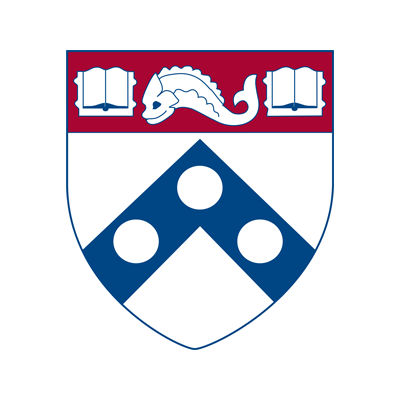预约演示
更新于:2025-05-07
LDLR
更新于:2025-05-07
基本信息
别名 familial hypercholesterolemia、LDL receptor、LDLCQ2 + [4] |
简介 (Microbial infection) Acts as a receptor for hepatitis C virus in hepatocytes, but not through a direct interaction with viral proteins.
(Microbial infection) In case of HIV-1 infection, may function as a receptor for extracellular Tat in neurons, mediating its internalization in uninfected cells.
(Microbial infection) Acts as a receptor for Vesicular stomatitis virus.
Binds low density lipoprotein /LDL, the major cholesterol-carrying lipoprotein of plasma, and transports it into cells by endocytosis. In order to be internalized, the receptor-ligand complexes must first cluster into clathrin-coated pits. Forms a ternary complex with PGRMC1 and TMEM97 receptors which increases LDLR-mediated LDL internalization (PubMed:30443021).
(Microbial infection) Acts as a receptor for Crimean-Congo hemorrhagic fever virus (CCHFV).
(Microbial infection) Acts as a receptor for many Alphavirus, including Getah virus (GETV), Ross river virus (RRV) and Semliki Forest virus. |
关联
27
项与 LDLR 相关的药物靶点 |
作用机制 LDLR调节剂 [+2] |
在研机构 |
原研机构 |
在研适应症 |
非在研适应症- |
最高研发阶段批准上市 |
首次获批国家/地区 美国 |
首次获批日期1977-04-04 |
靶点 |
作用机制 LDLR调节剂 |
原研机构 |
在研适应症 |
非在研适应症 |
最高研发阶段临床2期 |
首次获批国家/地区- |
首次获批日期1800-01-20 |
靶点 |
作用机制 LDLR调节剂 |
在研机构 |
原研机构 |
非在研适应症- |
最高研发阶段临床1期 |
首次获批国家/地区- |
首次获批日期1800-01-20 |
11
项与 LDLR 相关的临床试验NCT06293729
A Clinical Study for the Safety and Efficacy of Intravenous Infusion of NGGT006 in Treatment of Refractory Hypercholesterolemia
This is an early phase 1, open-label, single-center, dose-escalation pilot trial to evaluate the safety and efficacy of an intravenous infusion of NGGT006 in patients with refractory Hypercholesterolemia diagnosed by gene testing for familial hypercholesterolemia. NGGT006 uses adeno-associated virus (AAV) as a vector, carrying a liver specific promoter and codon optimized human LDLR gene, driving the expression of LDLR protein with normal function and promoting the clearance of low-density lipoprotein cholesterol (LDL-C).
开始日期2024-06-01 |
申办/合作机构 |
NCT04080050
A Long-term Follow-up Study to Evaluate the Safety and Efficacy of RGX-501
This long-term observational study is designed to follow subjects who, during another Clinical Study, received gene therapy treatment used to treat their Homozygous Familial Hypercholesterolemia (HoFH) disease. This study is intended to follow those subjects for up to 5 years since they received treatment to look for any long-term safety concerns. There is no investigational drug or therapy provided as part of this study.
开始日期2019-09-30 |
申办/合作机构 |
NCT03194776
A Patient and Investigator-blinded, Randomized, Placebo Controlled Study of LLG783 in Patients With Peripheral Artery Disease (PAD) and Intermittent Claudication
This study is designed to determine whether LLG783 displays the clinical safety and efficacy profile, after multiple i.v. doses, to support further development in patients with PAD and intermittent claudication.
开始日期2017-09-20 |
100 项与 LDLR 相关的临床结果
登录后查看更多信息
100 项与 LDLR 相关的转化医学
登录后查看更多信息
0 项与 LDLR 相关的专利(医药)
登录后查看更多信息
25,584
项与 LDLR 相关的文献(医药)2025-12-31·Animal Biotechnology
Quercetin alleviates metabolic-associated fatty liver disease by tuning hepatic lipid metabolism, oxidative stress and inflammation
Article
作者: Jiang, Ling ; Yi, Rong ; Chen, Huan ; Wu, Shuwu
2025-12-31·Islets
Atorvastatin enhances LDL receptor-mediated LDL-C uptake and modulates PCSK9 protein expression in pancreatic β-cells
Article
作者: Xiang, Aoqi ; Chen, Xiaochang ; Zhang, Lusha ; Guan, Hua ; Zhang, Zhiyan ; Fan, Jianglin ; Zheng, Huadong ; Su, Peihong ; Yang, Juan ; Yu, Qi
2025-12-31·Annals of Medicine
CAVIN-2 positively correlates with diabetic PAD and promotes LDL transcytosis by inhibiting eNOS activation
Article
作者: Wang, Li ; Yao, Yulin ; Jin, Si ; Yin, Yao ; Yu, Fangyang ; Xue, Baorui ; Shu, Yan ; Pan, Yangze ; Ma, Xiang ; Feng, Ziyun ; Song, Yi
342
项与 LDLR 相关的新闻(医药)2025-04-28
近期,Verve Therapeutics宣布了在研碱基编辑疗法VERVE-102在1b期临床试验Heart-2中的初步积极数据。这项临床试验的受试者包括杂合性家族性高胆固醇血症(HeFH)和/或早发性冠状动脉疾病(CAD)的患者,这两个人群均需要深度且持久地降低血液中的低密度脂蛋白胆固醇(LDL-C,俗称“坏胆固醇”)水平。试验结果显示,在14名受试者中,VERVE-102的耐受性良好,未观察到与治疗相关的严重不良事件(SAEs)及具有临床意义的实验室检测异常。单次输注VERVE-102可导致血液中PCSK9蛋白水平和LDL-C呈剂量依赖性下降,其中在0.6 mg/kg剂量组的4名受试者中,平均血液LDL-C降低53%,LDL-C降低幅度最高可达69%。VERVE-102是一种在研体内碱基编辑药物,旨在通过单次治疗,永久性关闭肝脏中PCSK9基因的表达,从而持久性降低导致疾病的LDL-C。VERVE-102由腺嘌呤碱基编辑器和针对PCSK9基因的引导RNA(gRNA)组成,两者均被封装在脂质纳米颗粒(LNP)中,并以单次静脉输注方式在2至4小时内给药。VERVE-102采用了Verve自主研发的GalNAc-LNP递送技术,该技术设计使LNP能够利用低密度脂蛋白受体或无唾液糖蛋白受体(ASGPR)进入肝细胞。推荐阅读血脂高不仅伤血管,还会 “伤脑子”?跨越12年研究:这类胆固醇越高,认知衰退越快JACC:每天一次,“坏胆固醇”降低超50%!近85%患者降脂达标NEJM:半年一针,降低脂蛋白(a)高达95%,新药降脂效果至少维持1年!“一药三效”,降糖、降脂还护肝!JAMA子刊:新药为糖尿病患者带来潜在选择参考资料:[1] Verve Therapeutics Announces Positive Initial Data from the Heart-2 Phase 1b Clinical Trial of VERVE-102, an In Vivo Base Editing Medicine Targeting PCSK9. Retrieved April 14, 2025, from https://ir.vervetx.com/news-releases/news-release-details/verve-therapeutics-announces-positive-initial-data-heart-2-phase免责声明:药明康德团队专注介绍全球生物医药健康研究进展。本文仅作信息交流之目的,文中观点不代表药明康德立场,亦不代表药明康德支持或反对文中观点。本文也不是治疗方案推荐。如需获得治疗方案指导,请前往正规医院就诊。版权说明:本文来自药明康德团队,欢迎个人转发至朋友圈,谢绝媒体或机构未经授权以任何形式转载至其他平台。转载授权请在「药明康德」微信公众号回复“转载”,获取转载须知。分享,点赞,在看,传递医学新知
临床结果临床研究
2025-04-28
SHANGHAI, April 28, 2025 /PRNewswire/ -- YolTech Therapeutics Co.,Ltd, a clinical-stage in vivo gene editing company committed to pioneering the next generation of precision genetic medicines, announced promising interim clinical data from an investigator-initiated trial (IIT) of YOLT-101 (NCT06458010), and the data has been published on medRxiv. YOLT-101 is an investigational in vivo base editing therapy for the treatment of heterozygous familial hypercholesterolemia (HeFH). Clinical data demonstrate that YOLT-101 can safely and effectively reduce low-density lipoprotein cholesterol (LDL-C) levels in HeFH patients with a single administration. As a next-generation gene-editing therapy, YOLT-101 represents a breakthrough in lipid-lowering treatment – moving beyond daily pills and regular injections, and opening a new era of "one-time treatment for lifelong LDL-C reduction."
YOLT-101 is a next-generation in vivo base-editing therapeutic independently developed by YolTech. It features the novel, proprietary adenine base editor, YolBE—specifically hpABE5—which consists of nCas9 and a newly discovered deaminase derived from Hafnia paralvei. For delivery, it utilizes a new lipid nanoparticle (LNP) formulation. Unlike traditional CRISPR/Cas9 systems that rely on inducing DNA double-strand breaks (DSBs), hpABE5 enables precise single-base editing without generating DSBs, thereby significantly reducing the risks of chromosomal abnormalities and off-target effects. Extensive preclinical studies have demonstrated its excellent genome editing safety profile.
The in vivo base-editing therapy is delivered via intravenous infusion and selectively internalized by hepatocytes, where it induces a precise nucleotide conversion within the PCSK9 gene. This targeted edit disrupts PCSK9 protein expression, leading to enhanced uptake of LDL-C by LDL receptor on hepatocyte surfaces and finally resulting in a marked reduction in plasma LDL-C levels.
Study Design of the IIT
This is an open-label clinical trial conducted in patients with HeFH. The primary objective is to evaluate the safety and tolerability of YOLT-101, while also aiming to explore preliminary efficacy and pharmacodynamics. As of March 15, 2025, a total of 6 subjects have been enrolled: 1 in the 0.2 mg/kg cohort, 2 in the 0.4 mg/kg cohort, and 3 in the 0.6 mg/kg cohort. All subjects have completed at least 24 weeks of safety follow-up, with the longest reaching 36 weeks.
Safety and Tolerability
YOLT-101 has shown good safety and tolerability. As of March 15, 2025, no serious adverse events (SAEs), dose-limiting toxicity (DLT) events, or Grade ≥3 adverse events (according to CTCAE v5.0) were observed in any dose group. All enrolled subjects are under follow-up as scheduled.
The most common treatment-related adverse event was transient infusion-related reactions (5/6, 83.3%), with a manifestation of fever that resolved within 24 hours. Mild elevations in liver enzymes (3/6, 50.0%) were reported, which emerged on Day 4-7 following administration and rapidly alleviated usually after 7 days. All these patients did not show any relevant symptoms, and their plasma bilirubin levels (important indices for liver function) remained within normal limits throughout. No clinically significant changes were observed in other laboratory parameters.
Efficacy and Pharmacodynamics
LDL-C levels demonstrated a dose-dependent reduction following administration. Baseline LDL-C was 4.9 ± 0.6 mmol/L. In the 0.4 mg/kg and 0.6 mg/kg cohorts, sustained reductions in LDL-C were observed as early as Week 1 post-administration, reaching a maximal effect by Week 4. In the 0.6 mg/kg group, mean LDL-C level decreased by around 50% through the last follow-up with acquired data compared to baseline. The subject with the greatest response showed an LDL-C level of approximately 1 mmol/L (maximal percent change from baseline over 74%), and the efficacy has sustained for over 6 months following single-dose infusion. Pharmacodynamic data showed consistent trends, with plasma PCSK9 protein levels decreasing by over 70% from baseline starting at Week 4 in the 0.6 mg/kg group (maximal individual reduction reached 87%).
Notably, all enrolled subjects in this study were HeFH patients. PCSK9-targeting therapies typically show reduced efficacy in this population compared to with general hypercholesterolemic population. This suggests that YOLT-101 may demonstrate even greater lipid-lowering potential in the general hypercholesterolemic population.
In summary, YOLT-101 exhibits favorable safety and tolerability in HeFH patients, with adverse events being mild and transient. Both pharmacodynamic (PCSK9) and efficacy (LDL-C) outcomes in the 0.4 mg/kg and 0.6 mg/kg groups showed durable, dose-dependent reductions. These results support the potential of YOLT-101 to achieve "single-dose, lifelong lipid lowering."
"We are dedicated to revolutionizing traditional approaches to cardiovascular disease through next-generation base editing technology and groundbreaking single-dose treatment," said
Dr. Yuxuan Wu, co-founder and CEO of YolTech Therapeutics. " Patients with heterozygous familial hypercholesterolemia (HeFH) suffer from a lifelong, genetically driven impairment in LDL-C metabolism, resulting in markedly elevated low-density lipoprotein cholesterol (LDL-C) levels from birth. This population is at exceptionally high risk for premature atherosclerotic cardiovascular diseases. Current lipid-lowering therapies rely heavily on long-term, continuous administration. However, once treatment is discontinued, LDL-C levels rebound. These regimens are frequently hindered by poor patient adherence and drug intolerance—highlighting a critical unmet need for more durable, patient-friendly therapeutic solutions. Current clinical data of YOLT-101 demonstrates a single YOLT-101 administration can lead to significant and durable reductions in LDL-C levels. By precisely editing key genes regulating LDL-C levels in the liver, YOLT-101 has the potential to be a transformative 'one-time treatment, lifelong cure' therapy. We look forward to further confirming its safety and efficacy in larger-scale clinical studies and conferring benefits to patients worldwide."
About Familial Hypercholesterolemia (FH)
Familial hypercholesterolemia (FH) is caused by mutations in LDL metabolism-related genes (LDLR, APOB, PCSK9). As a result, patients with FH have markedly elevated low-density lipoprotein cholesterol (LDL-C) levels and premature atherosclerotic cardiovascular disease (ASCVD). The global prevalence of FH is 1:200-1:250, affecting a total of ~34 million people worldwide.
Current FH management strategies include lifestyle modifications, lipid-lowering medications, lipoprotein apheresis, and liver transplantation. The standard of treatment involves pharmacotherapy, with most patients receiving a triple regimen of statins, ezetimibe, and PCSK9 inhibitors. However, current therapies have significant limitations including suboptimal efficacy, intolerable side effects, and poor long-term adherence. These challenges underscore the urgent need for novel, durable therapies to address the lifelong treatment burden of FH.
About YolTech
YolTech Therapeutics is a clinical-stage in vivo gene editing company committed to pioneering the next generation of precision genetic medicines. Our approach combines innovative gene editing technologies with an advanced lipid nanoparticle (LNP) delivery system, creating a versatile platform designed to address a wide range of serious diseases. Central to our mission is the development of internal capabilities, including end-to-end manufacturing, to ensure the highest standards of quality and scalability. Our lead candidate, targeting ATTR, marks a significant milestone as China's first LNP-mediated in vivo gene editing therapy to enter clinical development. With promising early clinical outcomes, YolTech is also advancing therapies for familial hypercholesterolemia (FH) and primary hyperoxaluria type 1 (PH1). As a company dedicated to transforming the treatment landscape, YolTech continues to push the boundaries of what is possible in gene editing.
For more information, please visit:
SOURCE YolTech Therapeutics
WANT YOUR COMPANY'S NEWS FEATURED ON PRNEWSWIRE.COM?
440k+
Newsrooms &
Influencers
9k+
Digital Media
Outlets
270k+
Journalists
Opted In
GET STARTED
临床结果基因疗法临床研究
2025-04-23
关注并星标CPHI制药在线4月17日,中国国家药品监督管理局药品审评中心(CDE)官网公示信息显示,尧唐生物(YolTech Therapeutics)研发的1类新药YOLT-101注射液临床试验申请获正式受理。通过CDE官网信息查询确认,此次申报为该产品在中国首次提交IND申请。1. YOLT-101注射液的创新性和疗效家族性高胆固醇血症(FH)是一种常染色体(共)显性遗传病,其发病机制与低密度脂蛋白受体(LDLR)介导的肝脏LDL代谢相关基因发生致病性突变密切相关。临床特征主要表现为血清低密度脂蛋白胆固醇(LDL-C)水平显著升高,以及皮肤/腱黄色瘤的出现。目前针对这种遗传病的治疗手段包括生活方式调整、降血脂药物治疗、脂蛋白血浆置换及肝移植手术等。其中,降血脂药物是最主要的治疗方式。临床对家族性高胆固醇血症患者常采用他汀类药物、依折麦布联合PCSK9抑制剂的三联疗法,但现有治疗手段下,患者仍面临疗效不佳、药物副作用、需终身用药导致依从性差等诸多挑战。YOLT-101注射液是尧唐生物在研的一款靶向PCSK9基因的体内碱基编辑药物。其采用腺嘌呤碱基编辑器YolBE®与新型脂质纳米颗粒(LNP)递送系统。有别于传统CRISPR/Cas9技术依赖的DNA双链断裂机制,YolBE®能够在避免DNA双链断裂的情况下完成单碱基精确编辑。图注:YOLT-101的作用原理(来源:尧唐生物)通过临床前研究验证,该技术在显著降低染色体异常及脱靶风险的同时,展现出优异的基因组编辑安全性。这种安全性优势使其在心血管疾病等常见病症的治疗中更具应用潜力。研究者发起的临床研究(IIT)数据显示,YOLT-101表现出良好的安全性及耐受性。截至2025年1月31日,各剂量组均未出现严重不良事件(SAE)、剂量限制性毒性(DLT)事件,亦无达到CTCAE v5.0标准≥3级的不良事件,且无受试者因不良事件退出研究。从疗效来看,用药后DL-C水平下降呈现明确的剂量依赖性特征。所有纳入疗效评估的受试者均已完成至少16周的随访观察:中、高剂量组在给药后第1周即出现LDL-C水平下降趋势,至第4周时,高剂量组受试者LDL-C最高降幅接近80%,充分体现了YOLT-101注射液对家族性高胆固醇血症患者的显著降血脂效果。2. 体内基因编辑药物的巨大潜力体内基因编辑药物正凭借其“一次治疗、长期有效”的独特优势,重塑人类对遗传疾病的治疗认知。尧唐生物聚焦于研发基于mRNA-LNP递送系统的体内基因编辑药物。公司依托多个技术创新平台,成功开发出新一代基因编辑器YolCas™与碱基编辑器YolBE®,并自主研发出具有知识产权的新型脂质纳米颗粒YOL-LNPs®,显著提升了体内递送效率。图注:尧唐生物核心技术路径YOL-LNPs®实现体内编辑,递送效率高于行业基准数倍(来源:尧唐生物)这种DNA层面的永久性干预,不仅突破了现有药物依赖持续给药的局限,更开启了从“对症治疗”到“对因治愈”的医学革命。尧唐生物首个针对转甲状腺素蛋白淀粉样变性(ATTR)的体内基因编辑药物于2024年3月获CDE批准开展临床试验,并于2024年6月完成首例患者入组,这标志着国内首个由LNP介导的体内基因编辑药物正式进入临床阶段。图注:尧唐生物的研发管线(来源:尧唐生物)2024年8月27日,尧唐生物与信立泰正式签订协议,就其自主研发的PCSK9靶点碱基编辑药物YOLT-101在中国内地的开发及商业化达成合作,总交易金额近10.35亿元人民币。当前全球范围内仅有少数企业进入基因编辑治疗的临床阶段,中国企业通过技术创新与资本赋能,已在体内基因编辑赛道跻身国际第一梯队。随着临床研究的推进,这类药物有望逐步解决遗传病、代谢病等领域的未满足医疗需求,展现出覆盖千万患者的巨大市场价值与技术辐射潜力。结语IYOLT-101注射液ND申请获CDE受理,是中国体内基因编辑药物研发的重要突破。其依托YolBE与LNP技术实现单碱基精准编辑,临床前及临床研究显示YOLT-101可显著降低LDL-C水平,且安全性高。它为家族性高胆固醇血症患者带来新的选择,这也预示着“一次治疗”模式正在逐步迈向现实,前景广阔。参考来源:1. 尧唐生物官网2. CDE官网END【企业推荐】领取CPHI & PMEC China 2025展会门票来源:CPHI制药在线声明:本文仅代表作者观点,并不代表制药在线立场。本网站内容仅出于传递更多信息之目的。如需转载,请务必注明文章来源和作者。投稿邮箱:Kelly.Xiao@imsinoexpo.com▼更多制药资讯,请关注CPHI制药在线▼点击阅读原文,进入智药研习社~
临床申请基因疗法临床结果
分析
对领域进行一次全面的分析。
登录
或

生物医药百科问答
全新生物医药AI Agent 覆盖科研全链路,让突破性发现快人一步
立即开始免费试用!
智慧芽新药情报库是智慧芽专为生命科学人士构建的基于AI的创新药情报平台,助您全方位提升您的研发与决策效率。
立即开始数据试用!
智慧芽新药库数据也通过智慧芽数据服务平台,以API或者数据包形式对外开放,助您更加充分利用智慧芽新药情报信息。
生物序列数据库
生物药研发创新
免费使用
化学结构数据库
小分子化药研发创新
免费使用




